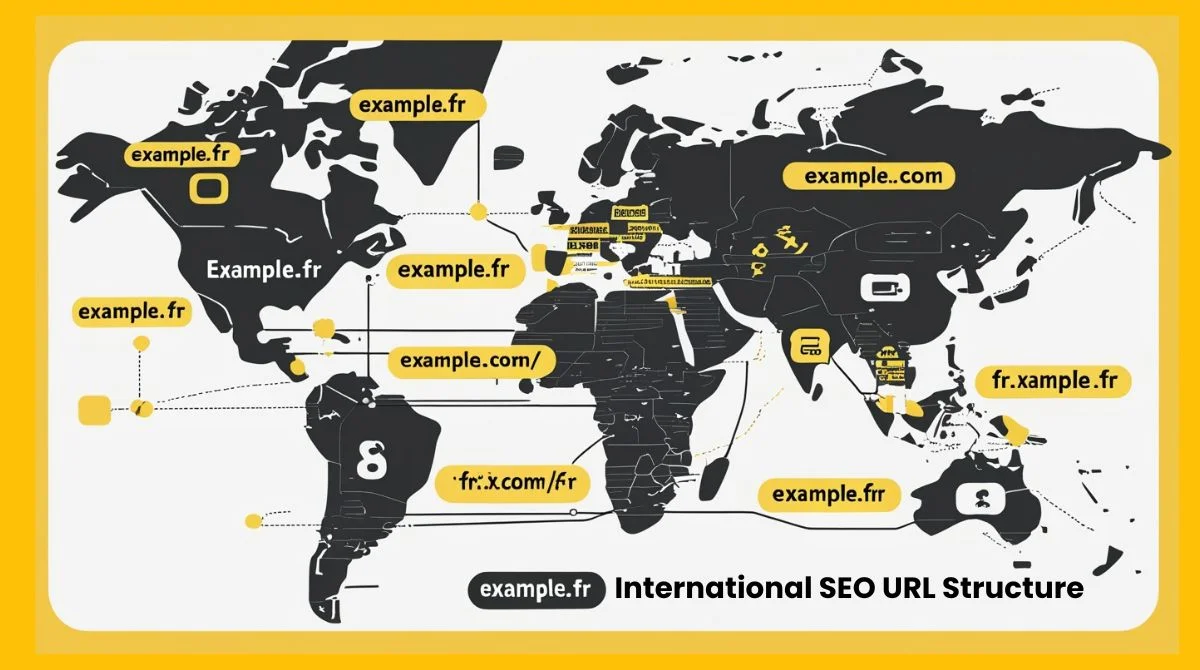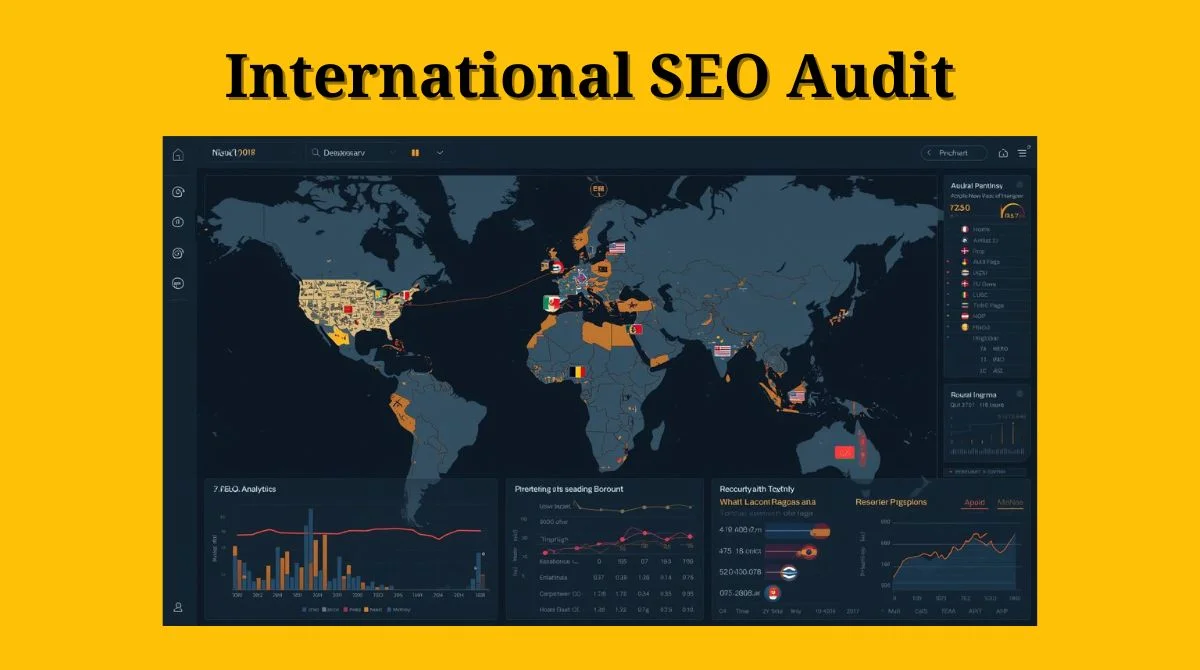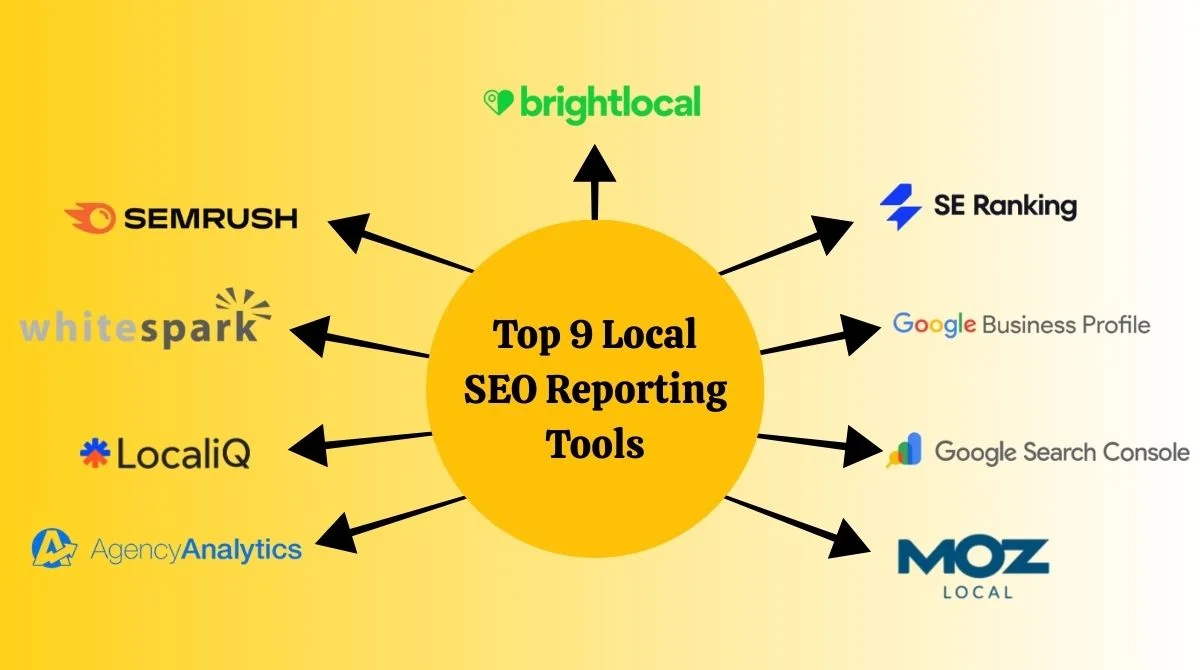- What is International SEO Keyword Research?
- Why International SEO Keyword Research Matters?
- Best International SEO Keyword Research Tools
- Essential International Keyword Research Strategies
- Technical Implementation for International SEO
- Common International Keyword Research Mistakes
- Advanced International SEO Tips
- Measuring International SEO Success
- Conclusion
What is International SEO Keyword Research?
International SEO keyword research is the process of finding and analyzing search terms used by people in different countries and languages. It helps businesses understand what their global audience searches for online.
This process goes beyond simple translation. It requires understanding local search behavior, cultural preferences, and regional market trends. Success depends on using the right tools and following proven strategies.
Why International SEO Keyword Research Matters?
Reach Global Audiences Effectively
Expanding to new markets requires understanding local search patterns. Different countries use different terms for the same products or services. What works in one region may fail completely in another.
Local competition varies significantly across markets. Keywords with high competition in the US might have low competition in European countries. This creates opportunities for strategic market entry.
Avoid Costly Translation Mistakes
Direct translation of keywords often leads to poor results. Machine translations miss cultural context and local slang. Professional keyword research prevents these expensive mistakes.
Regional search engines have different algorithms and preferences. Baidu dominates China while Yandex leads in Russia. Understanding these differences is crucial for success.
Best International SEO Keyword Research Tools
Google Keyword Planner
Google Keyword Planner remains the most accurate tool for international research. Most SEO experts agree that the most reliable keyword tool is Google Keyword Planner, a pay-per-click keyword research platform.
People believe Google Keyword Planner is the most accurate because the data comes directly from Google, the largest search engine in the world.
The tool offers country-specific targeting and language filters. Users can analyze search volume and competition levels for different regions. Free access makes it ideal for businesses starting their international expansion.
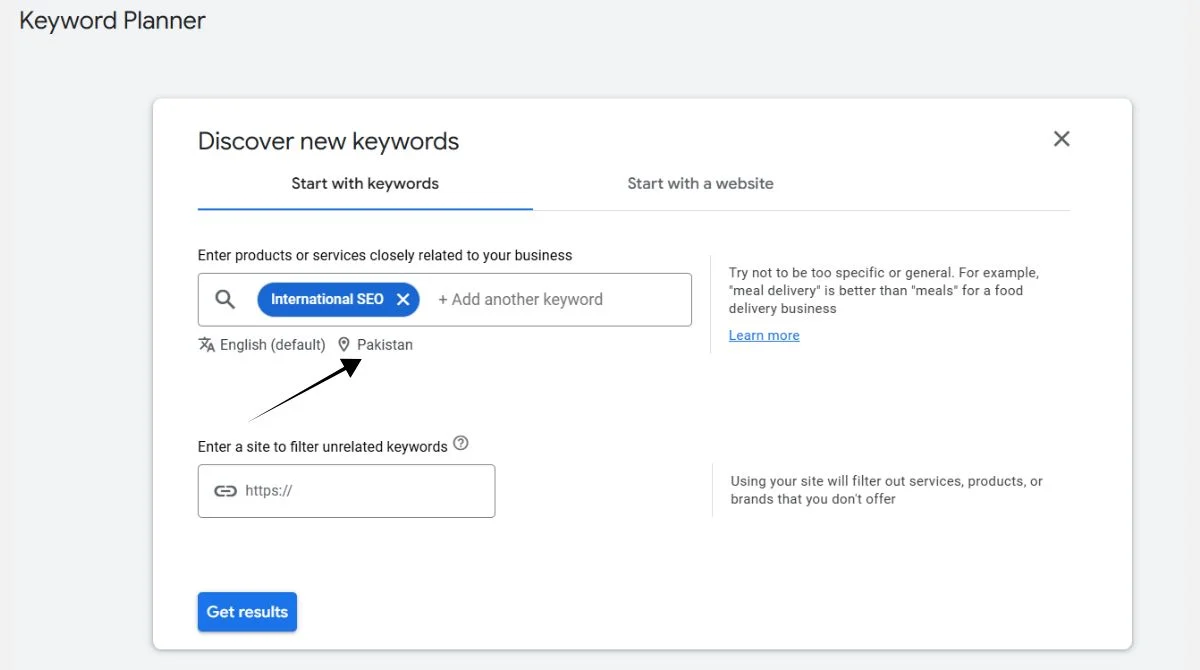
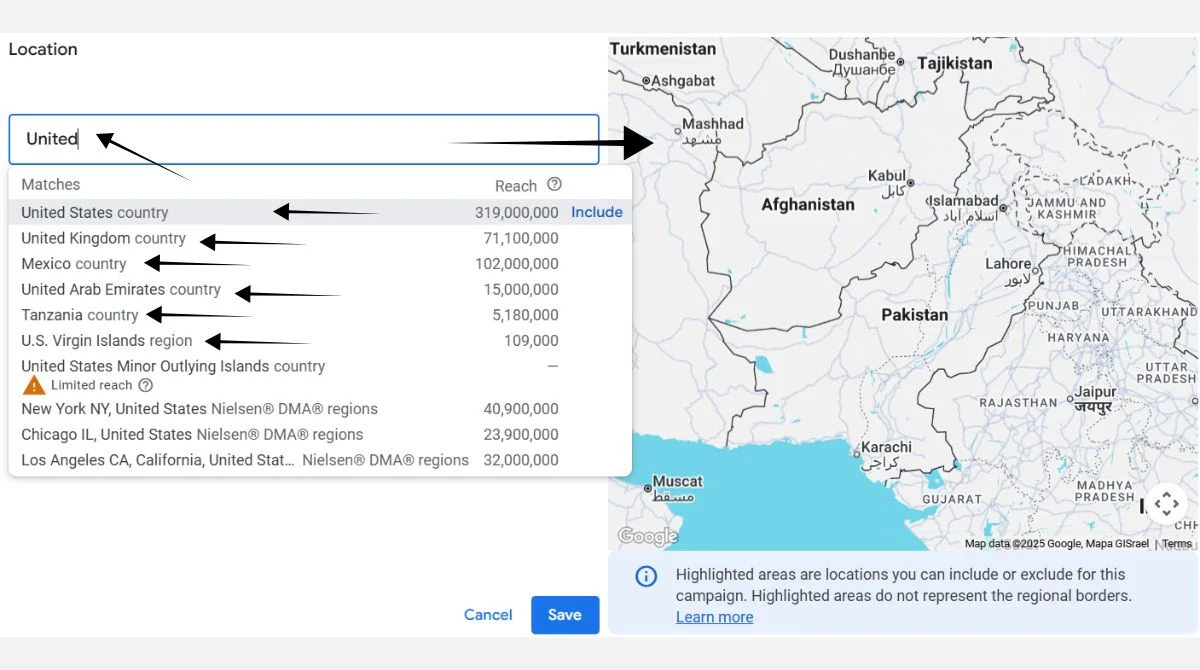
Ahrefs Keywords Explorer
Ahrefs provides comprehensive international keyword data for over 170 countries. The platform shows keyword difficulty, search volume, and click-through rates for each market.
The tool includes features for competitor analysis across different regions. Users can identify which keywords competitors rank for in specific countries. This intelligence helps shape effective strategies.
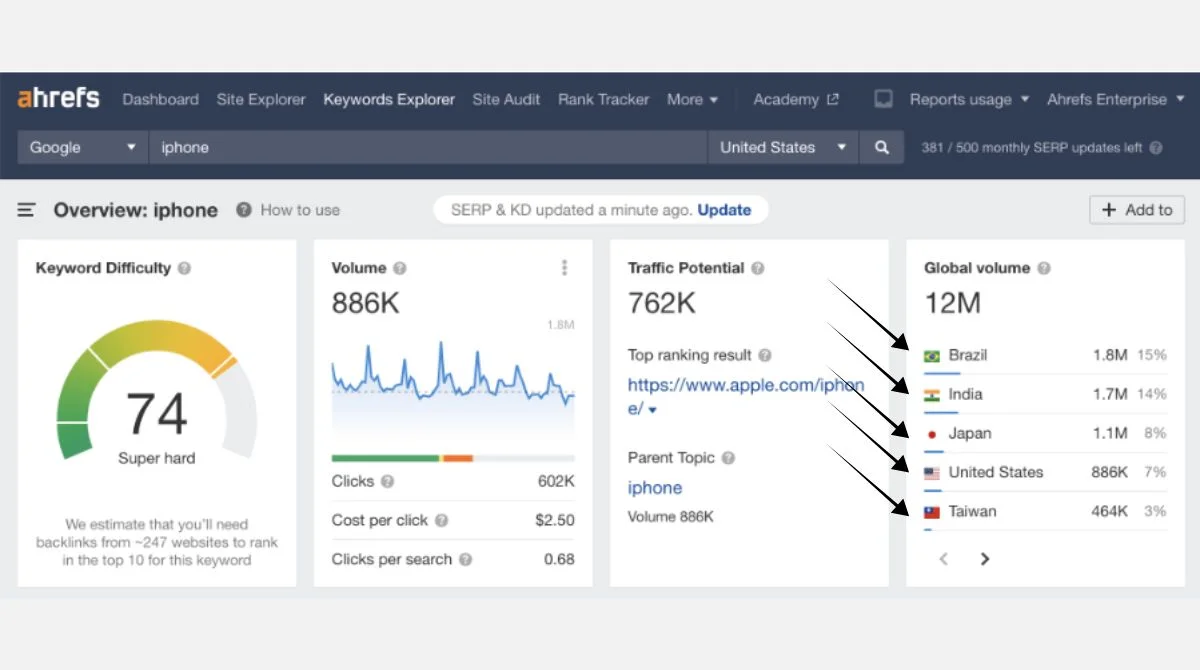
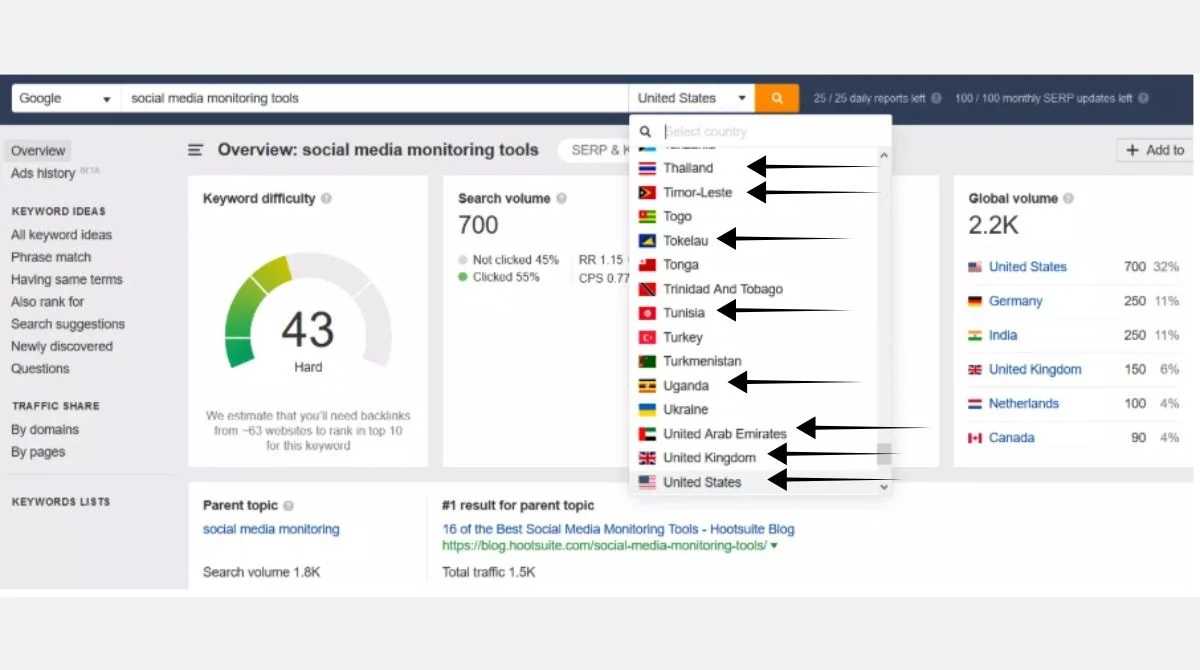
SEMrush Global Database
SEMrush offers one of the largest international keyword databases available. Popular tools include Google Keyword Planner, SEMrush, Ahrefs, Ubersuggest, and Google Trends. These allow country-specific targeting and analysis of keyword volume, competition, and trends.
The platform supports keyword research in over 140 countries and regions. Advanced filters help identify long-tail opportunities in specific markets. Position tracking across multiple countries provides ongoing performance insights.

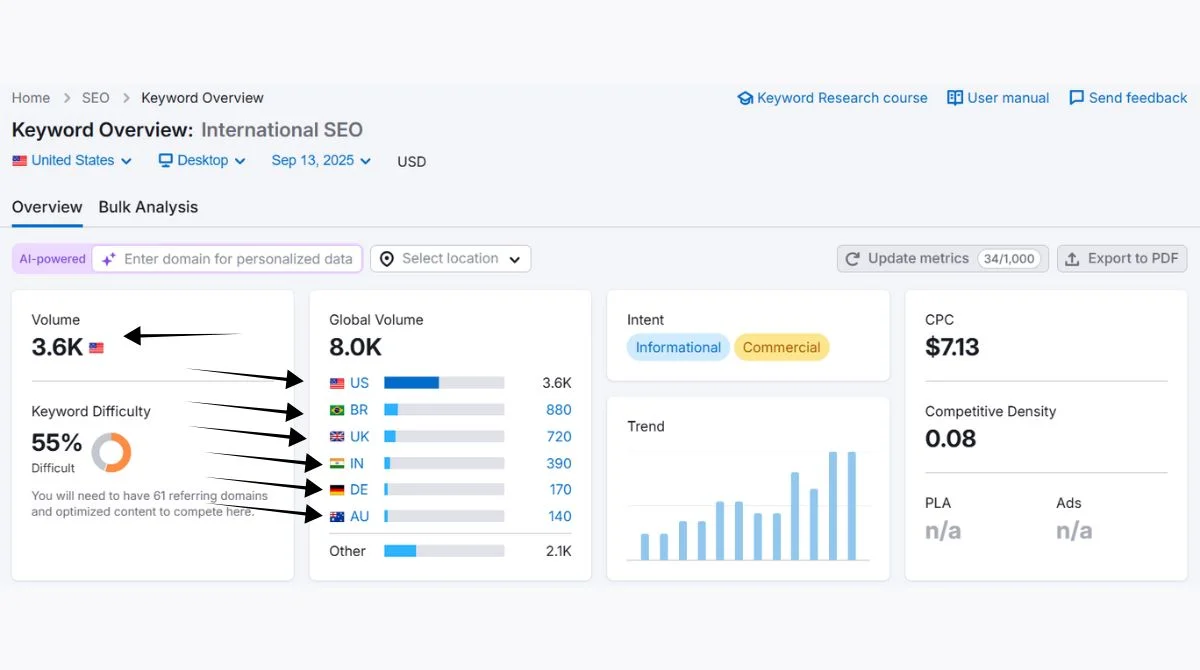
Moz Pro International Features
Moz Pro offers robust international keyword research capabilities. The platform includes country-specific SERP analysis and local competition insights.
Keyword difficulty scores are adjusted for different markets. This helps identify easier ranking opportunities in new regions. The tool also provides insights into local search trends and seasonal patterns.
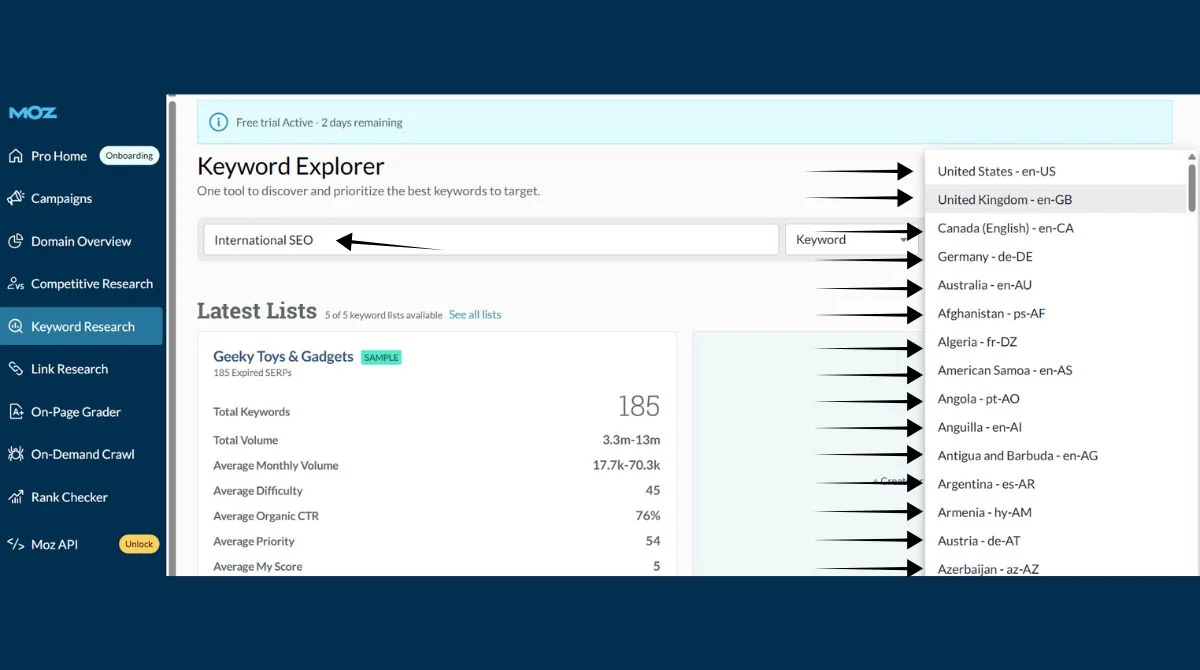
Essential International Keyword Research Strategies
Understand Local Search Behavior
Different cultures search differently online. Some regions prefer longer, more descriptive queries, while others use short keywords. Understanding these patterns improves targeting accuracy.
Mobile search behavior varies significantly by country. Many developing markets are mobile-first, affecting keyword selection and content strategy. Desktop dominance in some regions requires different approaches.
Analyze Cultural Context
Keywords carry cultural meanings that direct translation cannot capture. Local slang, idioms, and expressions often drive search behavior. Understanding these nuances prevents targeting mistakes.
Seasonal trends differ across regions due to climate and cultural events. Holiday seasons, shopping patterns, and business cycles vary by country. This affects keyword popularity throughout the year.
Study Local Competition
Competitor analysis reveals market opportunities and threats. Top-ranking sites in each country use different keywords and content strategies. Learning from local leaders accelerates success.
Local businesses often dominate certain keyword categories. International brands need different strategies to compete effectively. Understanding competitive landscapes helps identify winnable battles.
Technical Implementation for International SEO
Hreflang Tags Setup
Proper hreflang implementation prevents duplicate content issues across languages. Yes, hreflang tags support SEO by minimizing duplicate content and offering users a smoother experience on multilingual and international websites. When implemented properly, they can improve your site’s visibility in local search rankings.
Each page must include hreflang tags for all language versions. Missing tags can cause search engines to show the wrong language versions to users. Proper implementation requires attention to technical details.
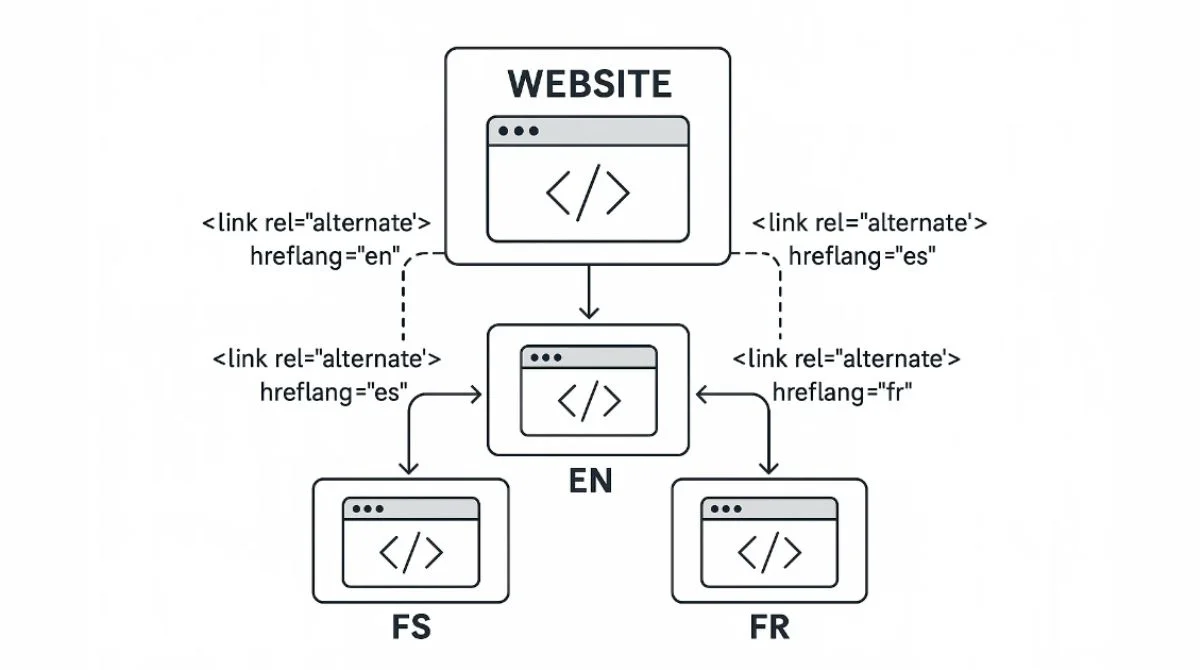
URL Structure Planning
Choose between subdirectories, subdomains, or country-specific domains. Each approach has different SEO implications and technical requirements. The choice affects how search engines understand your international structure.
Subdirectories often perform better for SEO but require more technical setup. Country-specific domains provide clear geographical signals but need separate optimization efforts.
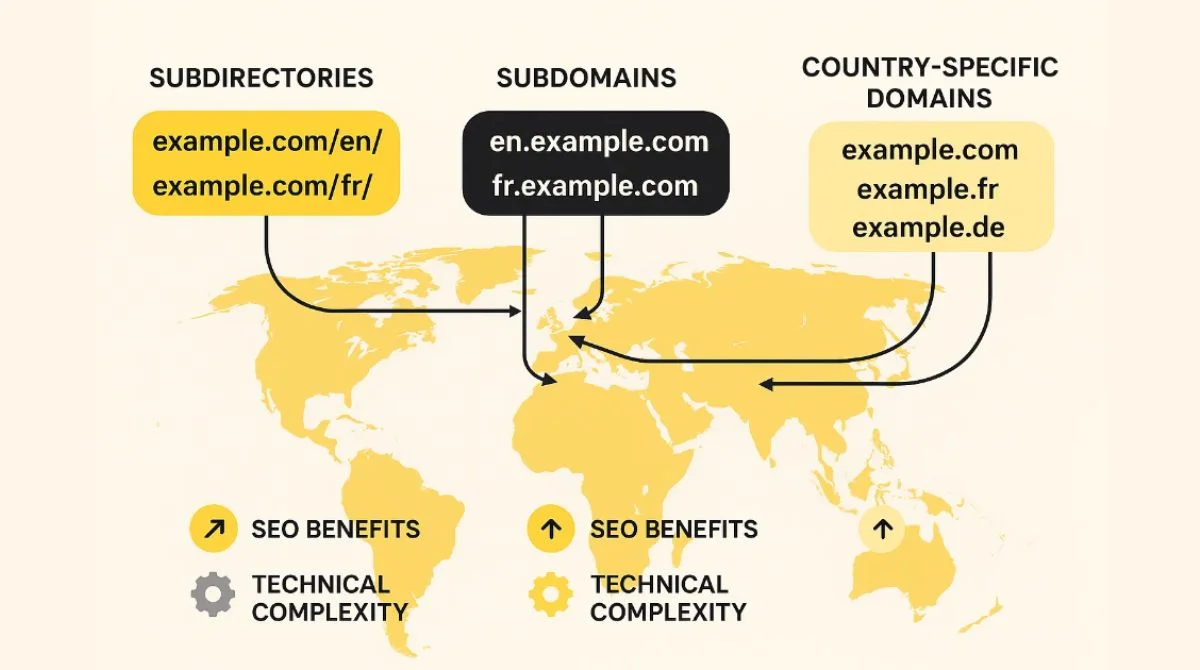
Server Location Considerations
Server location affects page loading speed in different regions. Faster loading times improve user experience and search rankings. Content delivery networks help optimize performance globally.
Local hosting can improve search engine trust signals. Some countries prefer locally hosted content for better rankings. Balance performance needs with local requirements.

Common International Keyword Research Mistakes
Over-Relying on Translation Tools
Machine translation misses context and cultural nuances. Professional human translation combined with local market research produces better results. Automated tools should supplement, not replace, human expertise.
Ignoring Local Search Engines
Google dominates globally, but local search engines matter in specific regions. Baidu in China, Yandex in Russia, and Naver in Korea require different optimization approaches.
Neglecting Mobile Preferences
Mobile search behavior varies significantly between countries. Some regions show strong mobile preference while others remain desktop-focused. Understanding these patterns affects keyword strategy.
Skipping Competitor Analysis
Local competitors understand their markets better than international newcomers. Studying their keyword strategies reveals opportunities and potential pitfalls. This research prevents costly mistakes.
Advanced International SEO Tips
Use Multiple Tool Combinations
At the end of the day, it’s all about using multiple tools to get the complete picture. What Google Keyword Planner shows for Germany might differ significantly from what local German SEO tools reveal about actual user behavior. This is why you should never rely solely on a single tool.
Different tools provide different insights into international markets. Combining data from multiple sources creates a more complete picture. Local tools often reveal insights that global platforms miss.
Monitor Seasonal Trends
International markets have different seasonal patterns and business cycles. Holiday seasons, weather changes, and cultural events affect search behavior. Planning content around these cycles improves results.
Test and Iterate Strategies
International SEO requires ongoing testing and refinement. What works in one market may need adjustment for others. Regular performance monitoring helps identify successful strategies.
Build Local Partnerships
Local partners understand their markets better than outsiders. They can provide insights into search behavior, cultural preferences, and competitive landscapes. These relationships accelerate international success.
Measuring International SEO Success
Track rankings for target keywords in each country separately. Search results vary significantly between regions, even for the same keywords. Country-specific monitoring provides accurate performance data.
Monitor organic traffic growth from different countries. Geographic analytics reveal which markets respond best to optimization efforts. This data guides resource allocation decisions.
Set Realistic Expectations
International SEO takes time to show results. New markets require patience and consistent effort. Setting realistic timelines prevents premature strategy changes.
Different markets mature at different rates. Some countries may show quick results while others require longer-term investment. Understanding these patterns helps set appropriate expectations.
Conclusion
International SEO keyword research opens doors to global market opportunities. Success requires understanding local search behavior and using the right tools. Start with thorough market research and competitor analysis. Use multiple tools like Google Keyword Planner, Ahrefs, and SEMrush for comprehensive data. Remember that international SEO takes time. Consistent effort and proper implementation lead to long-term success in global markets.



